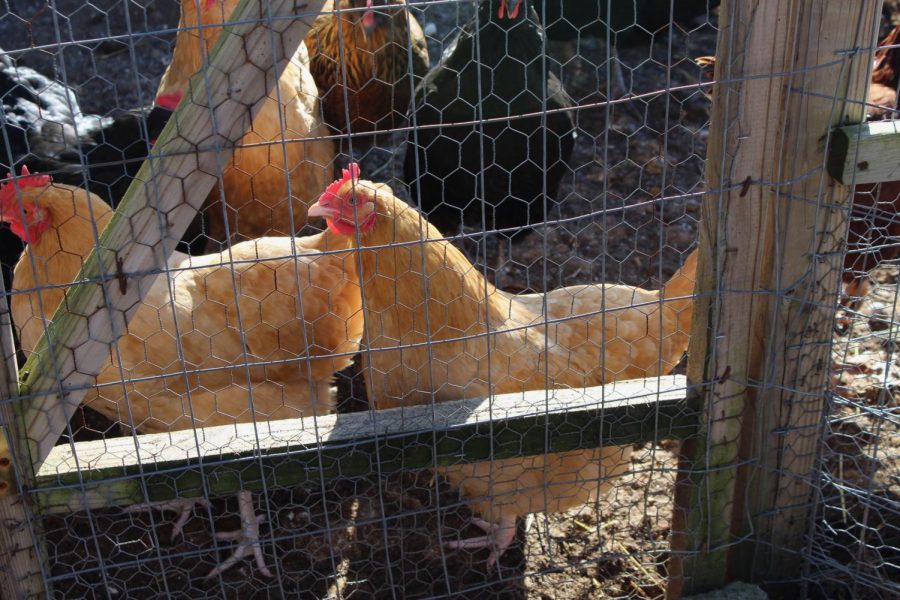Chicken and horse owners say special precautions come with winter season
As temperatures reach a record low and cities are freezing over, pet owners everywhere are urged to keep their pets outside for the shortest amount of time they possibly can. Dogs that aren’t noticeably made for the winter should be kept inside.
However, what happens with animals that aren’t the inside type? Horses, chickens and other livestock are protected by their coops and barns, but extra measures must be taken to keep them alive and well.
People are allowed to have chickens in their backyards in Rochester Hills and other cities where there is no law against them. There’s basic feeding routines for the summer, but how do these feeding routines change to accommodate colder weather and freezing temperatures?
Sophomore Dakota Brecht owns 25 chickens, three horses and two ducks. He said there are special steps that need to be taken to keep the chickens and other animals from getting frostbite.
“When the temperature is too low, the chickens won’t lay anything and they’re monitored by the temperature,” Brecht said. “We put a heat lamp in their coop and lay extra hay down, and then they go back to laying 12 to 15 eggs a day.”
Brecht said sometimes they have one or two chickens that won’t go into their coops, but they all go in eventually.
“Chickens and ducks are smart enough to come in,” he said.
He said the horses have a regimented diet while the chickens will eat anything, but someone must be careful to not give chickens too much, since “they will eat until they explode.”
Ashley Hayes and Kasey Hayes are sisters who grew up caring for horses in northern Michigan, and now each of them works at a farm or as riding instructors. Kasey cares for 20 horses in Kentucky while Ashley cares for two to three horses in Michigan.
When caring for the horses, Ashley and Kasey make sure the horses have extra hay to keep them warm.
“We feed once in the morning and once at night,” Kasey said. “Each one has at least one heavy weight blanket as well. It takes us — my manager and I — about 4 hours to do everything.”
Ashley said where she lives, they don’t have stalls or barns to keep the horses in, per se. She also has a regimented diet for the horses, and some of the portions get increased during the winter.
“We have two run in shelters for them to go in and out freely,” she said. “Each horse gets a different pelleted grain and at different amounts and a base of four flakes of hay a twice a day.”
She said they take extra precautions, such as making sure their shelters are sturdy, as well.
Both Ashley and Kasey said the horses are well adjusted to the cold weather in Kentucky and Michigan, and they use these precautions as extra protection.
“Horses are pretty resilient,” Kasey said. “Everyone is alive and well.”








